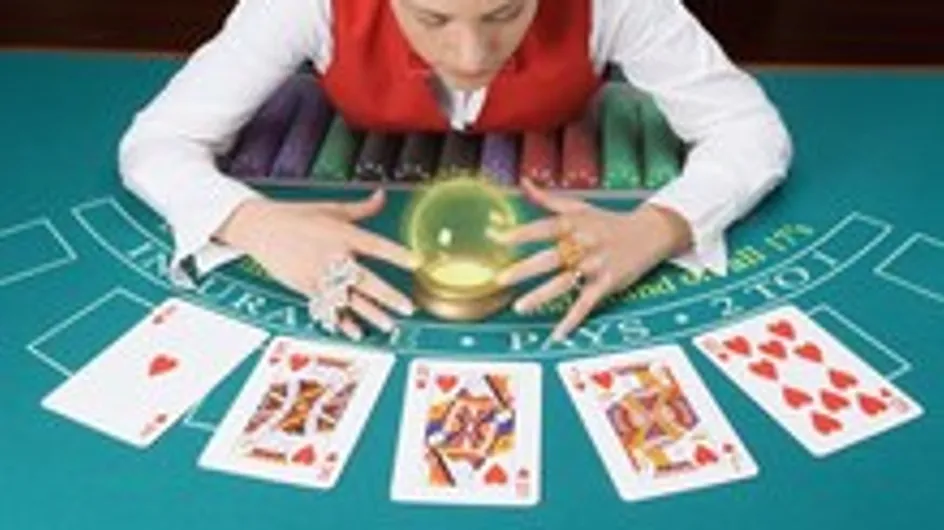What is a clairvoyant?
A clairvoyant has the psychic ability to perceive and receive information without the use of their 5 senses. In other words, they have a 6th sense. This gift allows them to predict the future, or pretend to, as no research has shown that this gift really exists - which they say is logical because by definition no gift needs to be proven! Clairvoyancy is part of parapsychology, a discipline rejected by vitually all scientists, even if it has been the subject of research for more than a century, notably in the USA.
Neither magician nor psychologist
A clairvoyant is able to help you become self aware and make good decisions using their extra-sensory faculties, but this doesn't make them magicians. Don’t count on them to give you the winning lottery numbers or cure illness with a wave of their magic wand. Also, don’t confuse the clairvoyant’s armchair with a psychoanalyst’s couch: during this type of consultation it’s the clairvoyant who does the talking, not you!
The first meeting
A good clairvoyant asks few questions. Don’t say too much at the beginning. It’s up to the clairvoyant to set the pace and find the right vibrations. They tell you where you are in your life, describe your character and understand what brings you to them. If you don’t feel comfortable, you don't click or you don’t recognise yourself in their description then it’s better to end the session there and then. You won’t owe them anything. However, don’t play games or try to test the clairvoyant: you risk ruining the atmosphere of trust that’s needed for a good session. In any case, you will soon know what kind of clairvoyant you're dealing with - a bad clairvoyant will constantly try and extract information from you.
Beware of scams
Let’s be honest: finding a decent clairvoyant in the classified ads or on the net seems like Mission Impossible, and all the more so because clairvoyancy is not regulated. It's an ideal playing field for all sorts of con artists. Anyone can claim that they see your future and find customers in unstable people. To choose your clairvoyant, rely on word of mouth and recommendation. Beware of offers that seem too good to be true (they are!), and clairvoyants who tell you that you’ll be sorry if you don’t see them. Go for reasonable prices, and be wary of free clairvoyants with premium telephone numbers. Extremely high rates are hidden behind these tempting offers, as well as long waiting times to match. You can find yourself forking out a small fortune even before you get to speak to a clairvoyant.
With or without supports
Some clairvoyants have flashes of images from your past, or they hear messages. In pure clairvoyancy, your name, date of birth and a photo is enough to trigger visions or sound messages. But it's not uncommon for clairvoyants to use divination such as astrology, numerology and cartomancy, runes, shells, crystal ball and palmistry.
Focus on divination
Humans by nature worry about their future and seek to control it, so it’s not surprising that every civilization has developed its own technique of seeing into the future. The oldest known prediction tables date from 3000 BC. All major civilisations (Egyptian, Caldean, Arab, Greek, Roman and Chinese) have used divinitory arts and most of these still exist today.
Cartmonacy - makes cards speak, using tarot and oracles.
Runology - reading of runes is based on the interpretation of Futhark, an ancient alphabet of Germanic origin from letters engraved on stones.
Palmistry - based on observing the lines on the palm of the hand
I ching - a Chinese divinitory art based on yin and yang and the transformation of all things in the universe. It is done by throwing coins or chopsticks.
Tea leaf reading - the study of tea leaves at the bottom of a cup (also done with coffee, wax, lead and egg yolks).
Christalomancy - observes shapes, colours and movement of reflections in water, mirrors or a crystal ball.
How to choose one
Each divintory art is as good as the next one as long as the practitioner knows his craft well. However some give better results than others, depending on the complexity of the questions asked and also on the method of communication used e.g in their place of work, on the Internet, by phone or by mail. Cartomancy, especially tarot, for example, is better if you go to the clairvoyant, so you can choose your own cards, plus the atmosphere facilitates the feelings of the psychic. Astrology and numerology give good results by post and are better for those who have the time and want to keep their distance. Direct contact can be made by telephone or on the net, which is recommended for those who have a simple question and don’t want to wait for an 'answer.'
How much does it cost?
Unfortunately there is no reference for the rates that clairvoyants charge and prices can vary enormously. A session of up to an hour at the clairvoyant’s place of practice can cost between £30 to £60, but anything over £75 is steep. For telephone clairvoyants, you could pay around £10 to £20 for the first few minutes then be charged £1 or more per minute. On the web it’s usually free at the beginning then billed around £30 to £40 per session in general. Be sure to do your reseach and compare prices until you find one that suits.













